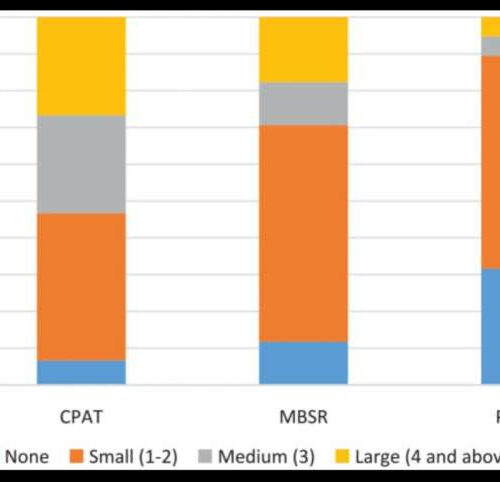Peer-Reviewed Publication BRIGHAM AND WOMEN’S HOSPITAL Glaucoma is the leading cause of irreversible blindness worldwide. Primary open-angle glaucoma (POAG) is the most common form, and yet the cause of this disease is poorly understood. Findings from previous genome-wide association studies suggest that there is a complex metabolic network that affects optic nerve health. Researchers from...
Improving potential stem cell-based treatments for patients with Type 1 Diabetes
Peer-Reviewed Publication INTERNATIONAL SOCIETY FOR STEM CELL RESEARCH Following encouraging results from pre-clinical research and a recent clinical trial on stem cell-based treatments for patients with Type 1 diabetes, researchers are now working on maximizing the function and potential of stem cell-based treatments for future application in patients. More than 8 billion people worldwide live...
New computerized training approach found to significantly reduce ADHD symptoms in 1 in 3 participants
by Tel-Aviv University The proportion of the different levels of Overall Improvement Index (OII) by group.The blue bar represents proportion of participants with no improvement, the orangebar represents proportion of participants with improvements in one to two outcomemeasures, the gray bar represents proportion of participants with improvements inthree outcome measures and the dark yellow bar represents...
Small, specific subpopulations of hypothalamic neurons play a major role in regulating the thyroid system
by Boston University School of Medicine Regulation of thyroid hormone (TH) levels is a complex multilevel phenomenon. The paraventricular nucleus (PVN) of the hypothalamus (the region of the brain that controls the involuntary nervous system) has been identified as a direct regulator of thyrotropin (a hormone secreted by the pituitary gland that regulates the production of...
Food-drug interactions could be impactful for some lung cancer patients, according to new study
by National Comprehensive Cancer Network New research in the June 2023 issue of Journal of the National Comprehensive Cancer Network has found that when alectinib—a safe and effective small molecule kinase inhibitor used to treat some types of advanced lung cancer—was taken with a fuller breakfast, or with lunch, it resulted in significantly higher drug concentrations than...
RNA nanoparticle therapy stops the spread of incurable bone marrow cancer, study finds
by Melissa Pappas, University of Pennsylvania School of Engineering and Applied Science Credit: Unsplash/CC0 Public Domain Multiple myeloma is an incurable bone marrow cancer that kills over 100,000 people every year. Known for its quick and deadly spread, this disease is one of the most challenging to address. As these cancer cells move through different...
New discovery can help detect brain tumors
by University of Turku Fluorine-18-labelled folate PET/CT 3D fusion image of a rat subject with a glioma visible in the central region of the brain. Credit: Maxwell Miner Folate-based radiopharmaceuticals can be used in positron emission tomography (PET) imaging to detect folate receptors in brain tumors. The discovery of folate receptors and their exploitation potential with...
Nose drops may boost stroke recovery, even after it’s “too late”
By Ben CoxworthJune 09, 2023 The medication could conceivably be self-administered by patients in their own homesDepositphotosVIEW 1 IMAGES Currently, if someone doesn’t receive treatment within a few hours of suffering a stroke, their chances of recovery are greatly diminished. That may one day no longer be the case, however, thanks to newly developed nasal drops....
Researchers find potential therapy for rare but devastating lung disease
by Bill Bangert, University of Cincinnati Tasnim Olatoke, graduate student in the UC College of Medicine. Credit: Andrew Higley/UC Marketing + Brand A treatment for a rare cancer-like lung disease found in women of childbearing age may have been discovered by University of Cincinnati researchers. The rare lung disease is called lymphangioleiomyomatosis or LAM, and the cause of it...
Revolutionizing cardiology: AI-based technology offers accurate analysis of cardiac disease
New research shows AI-based automated quantitative coronary angiography (AI-QCA) holds promise for accurate analysis of heart disease JMIR PUBLICATIONS (Toronto, June 12, 2023) – New research published in JMIR Cardio reveals the remarkable potential of artificial intelligence (AI) technology in analyzing coronary angiography, a common diagnostic procedure for coronary artery disease. Led by Dr In Tae Moon, the...







